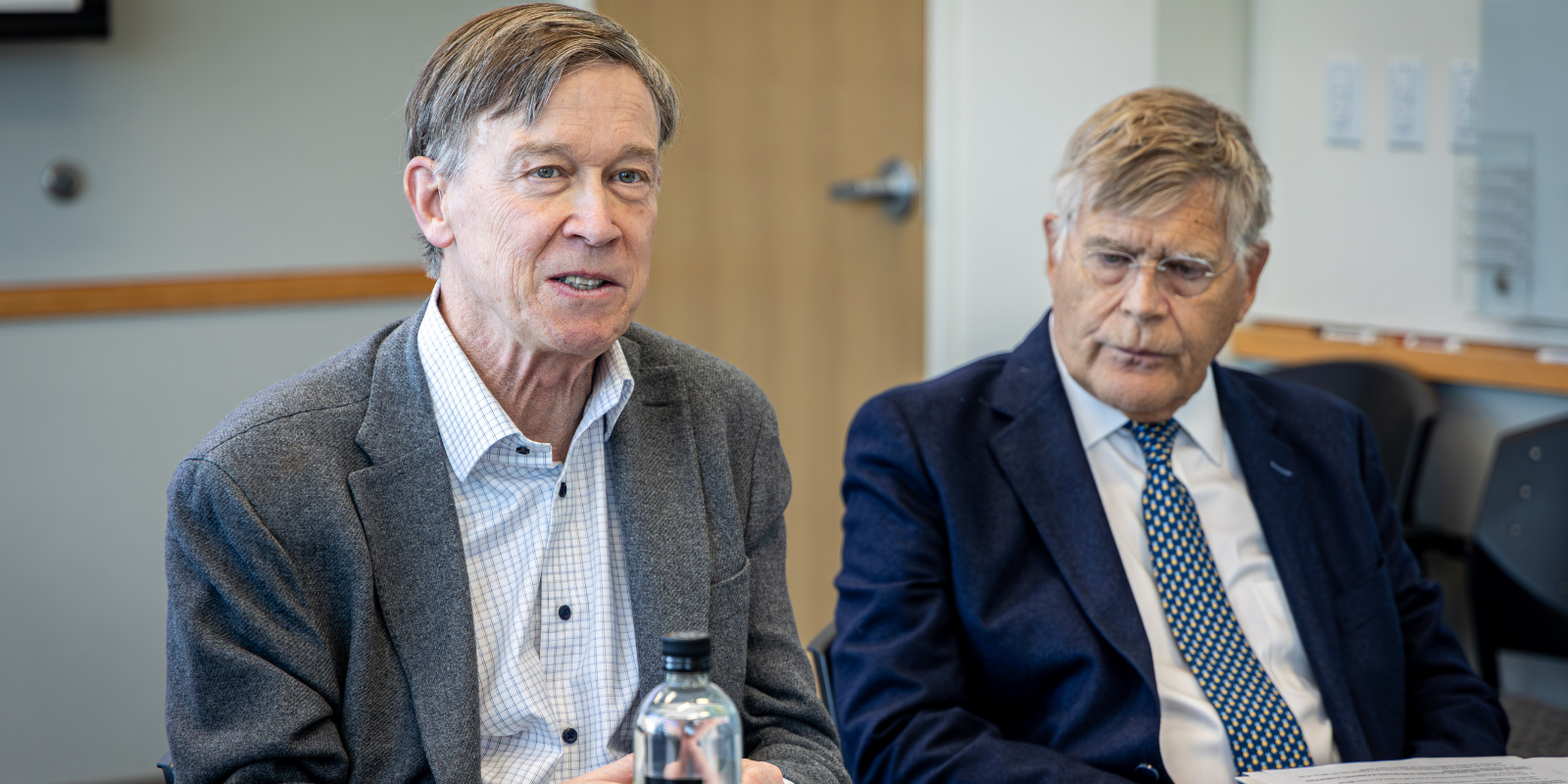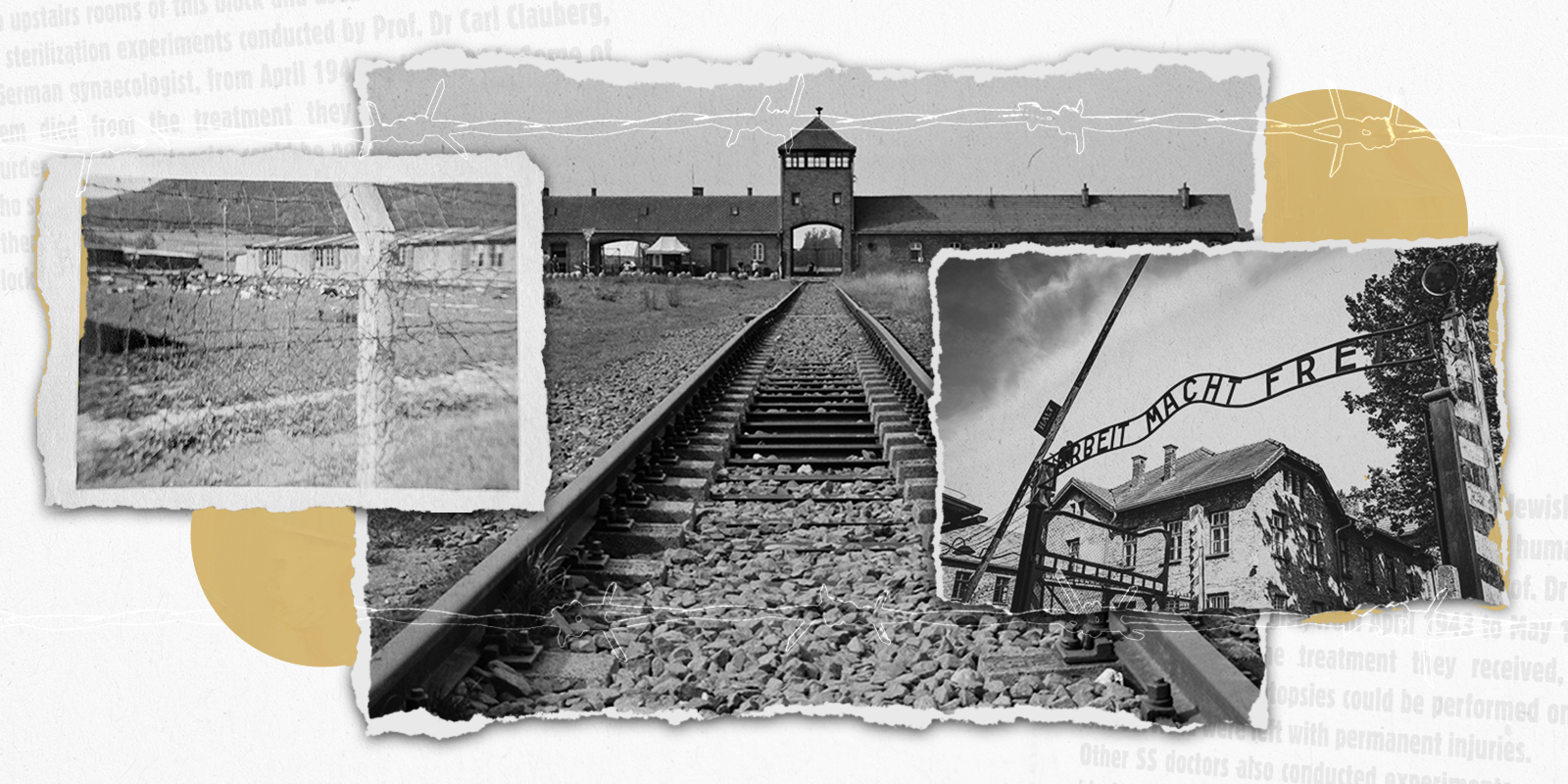Called home when her father was diagnosed with skin cancer, Dora Mueller BSN, had no idea how his end-of-life care would shape her own life.
Her father – who had worked as a migrant worker from Texas to California, his family in tow – told his daughter he didn't want to pursue treatment. He wanted to enjoy his time with his wife and family.
"Little did I know, he was at the forefront of palliative care," said Mueller, who graduated this fall from the Masters of Science in Palliative Care program at CU Anschutz and works to ease the symptoms, pain and stress for children with serious illnesses and their families at Children’s Hospital Colorado.
Returning home to a decision made
Mueller – who had joined the Air Force in search of a different life, meeting her husband and discovering a passion for nursing – remembers how adamant her father was following his diagnosis.
When she returned home to El Paso, where her father had settled the family following a sawmill accident when Mueller was 11, her dad shared his decision.
“He looked at me and said, ‘Why am I going to suffer and put myself through treatment, be stuck in a hospital away from your mom, not doing the things that I love? Taking her out to dinner, going to the movies, taking short trips. No, I have my wits about me right now. I'm not doing it.’"
“We're so afraid of talking about death and dying in society. And my father taught me that we shouldn't be afraid of it. It's a part of life. And in order for us to accept it, we need to also accept life.”– Dora Mueller, RN
It was the same insistence Mueller had seen with her father 10 years ago. A persistent dark spot on his thumb thought to just be an injury from working construction was biopsied and revealed subungual melanoma. The recommended next step at the time was amputation.
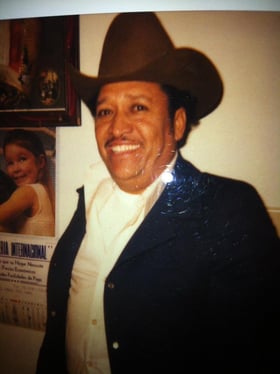
Heladio L. Ibarra - Mueller’s father. |
That prompted her father to say to his doctor: "Nope, you aren't touching it. I need to work. I need to do the work so that I can continue to survive and to live."
Getting exposure to palliative care
Ten years later and facing a terminal illness, Mueller’s aunts brought in curanderas (traditional healers) for her father. They encouraged her to continue talking with her dad, to, as she puts it, “Make those talks meaningful. Not only for myself and for him, but so that I could share those and bring my family to understand where this was going.”
It was her first experience with palliative care, and it came with some tough lessons. Many family members were angry with her father's decision, bluntly sharing their disagreement.
“Both my sisters and my brother were able to see that and understand it (not pursuing treatment for the melanoma). Unfortunately, his family was not so grateful about that. For the longest time, they didn't really talk to me and pretty much told me that I murdered my dad.”
The cancer eventually metastasized to her father’s brain.
“He got some radiation for palliative purposes, and he said, ‘It helps. It helps. But, it's time. It's just time. God has called me.’
Her father died at the age of 57.
Finding her niche
Mueller remembers most of all how her experience with her father reshaped how to think about life.
“We're so afraid of talking about death and dying in society. And my father taught me that we shouldn't be afraid of it. It's a part of life. And in order for us to accept it, we need to also accept life.”
Not long after her father’s passing in July 2001, Mueller found her calling – at Children's Hospital Colorado.
Floating between areas of care at her job at the nationally recognized children’s hospital on the University of Colorado Anschutz Medical Campus, Mueller continually found herself back in oncology, feeling a pull to help children with chronic illness.
She wanted to help guide children and their families in their care journey.
The road Mueller had taken to that point in her career had slowly nudged her toward pediatrics, from volunteering as a phlebotomist and working as a birthing coach while stationed in Honolulu, to being the base school nurse at Alconbury Air Force during the family’s time in England.
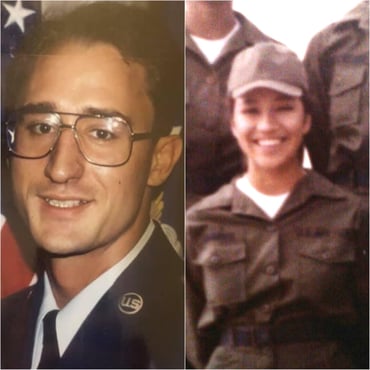
Robert and Dora Mueller during their time in the U.S. Air Force |
Eventually, one of her mentors at Children’s Hospital, Cindy McConnell, provided the next nudge Mueller needed. “She encouraged me and said, ‘Dora, your passion is life and death. Why don't you look at the Butterfly Program?’”
The former Butterfly Program – which was run by Children's Hospital and Centura Health – provided hospice care for children and support for their families.
Mueller had found her niche.
Coming full circle
For several years, she split her time between nursing at Children’s Hospital and the Butterfly Program. In 2018, when a position opened for a palliative care nurse coordinator at Children’s Hospital, she jumped, applying for the job and entering a master’s program at CU Anschutz.
With the encouragement of founder and Director Amos Bailey, MD, Mueller joined the Masters of Science of Palliative Care and Interprofessional Palliative Care Certificate programs.
“I'm 56 at the time, and I looked at my husband, and I'm like, ‘This is it. This is what I want to do. This is my passion,’” Mueller said, who graduated fall of 2021. “It's come full circle from where I was with my dad.”
Bailey said most of the students entering the program are mid-career and come influenced by exposure to end-of-life care.
“It is almost universal if you were to talk to our students and staff that we all have personal or significant work experiences that bring people to this work,” Bailey says. “They all have something happen that leads them to think this is an important part of care.”
Bailey’s extensive work experience with Mueller prior to her enrollment made a strong, positive impression.
“She has a point of view, she has years of experience, and she’s not afraid to share that with people. I appreciate her being a personal advocate for people who have different life experiences. Who have fewer resources or maybe don’t trust the system as much.”
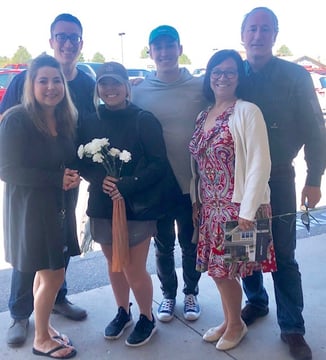
Mueller with her husband, sons, daughters-in-law |
‘It’s this moment now’
Ready for the next stage of her career, Mueller has her sights set on helping to build the palliative care program at Children’s Hospital Colorado. She plans on educating both staff and community members about end-of-life care, emphasizing the little moments and celebration of life.
Despite the heaviness of the work, it’s worth it, Mueller said. “It's these moments that make us who we are and who we become,” she said, describing how her chosen profession is about honoring those lives as they end and celebrating those moments.
“For that little baby that hung on waiting for his dad to come from a long two-hour trip to finally take his last breath and then letting the parents just hold him and tell him how much they love him,” Mueller said.
“That's what it's about, and that's my passion. And that is something that I live for. It's this moment. It's this moment now. So that's what keeps me going: my faith, my love of my family, my husband at my side and the love inside of me for all of those kids that I've taken care of.”
Finding where you are needed. The long way round.
Mueller will walk in graduation during May 2022 commencement so her extended family can attend.
You can read her first-person graduation profile at the Palliative Care Blog.


